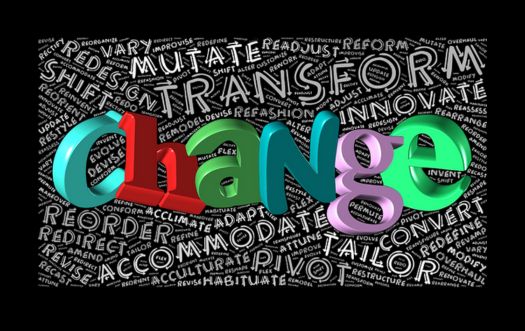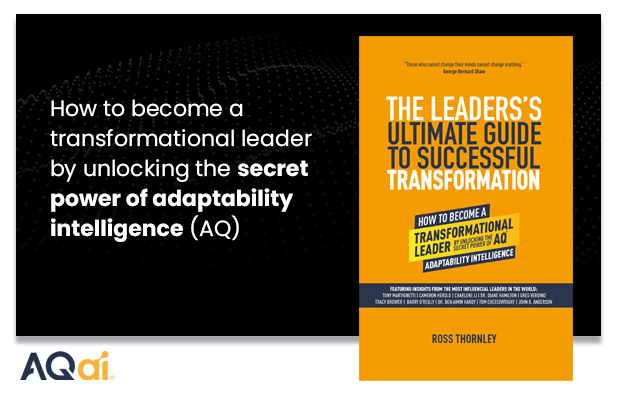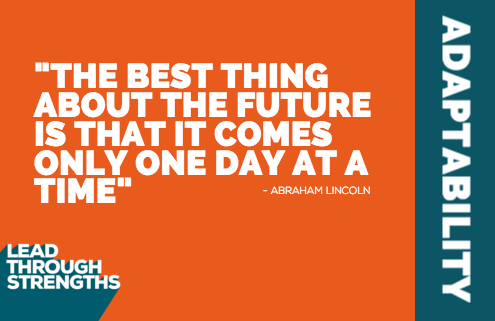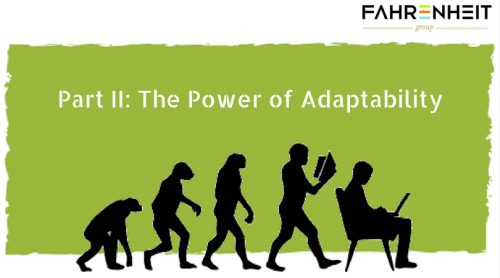Imagine a world where you can effortlessly navigate through life’s challenges, adapt to any situation, and unlock your full potential. Introducing “Unlock Your Potential: The Power of Adaptability,” a game-changing product that will transform the way you approach obstacles and achieve success. Created by Lifehackingtools, a leading website on productivity and life optimization, this resource provides the essential tools and techniques you need to cultivate adaptability in your everyday life. With its comprehensive content and actionable strategies, “Unlock Your Potential: The Power of Adaptability” is your key to mastering the art of adaptation and unlocking limitless possibilities.
What is Adaptability
Adaptability is the ability to adjust and thrive in changing circumstances. It is a skill that allows individuals to effectively respond to new situations, challenges, and requirements. Being adaptable means being open to change, embracing uncertainty, and being able to learn and grow from experience.
Definition
Adaptability refers to the capacity to adjust, modify, or change in response to different circumstances. It involves being flexible and open-minded, as well as being able to assess and respond to new situations in a timely and effective manner.
Importance
Adaptability is crucial for personal growth and success in various aspects of life, including relationships, career, and overall well-being. In today’s fast-paced and ever-changing world, those who possess adaptability skills are better equipped to navigate challenges, seize opportunities, and thrive in different environments.
Types of Adaptability
There are several types of adaptability that individuals can develop. Behavioral adaptability focuses on changing one’s behavior to fit different situations, while cognitive adaptability involves adjusting one’s thinking and approach to problem-solving. Emotional adaptability, on the other hand, refers to the ability to regulate and manage emotions in response to changing circumstances.
Developing Adaptability Skills
Developing adaptability skills requires self-awareness, a willingness to embrace change, and flexibility in one’s thinking and actions. Here are three key areas to focus on when improving adaptability skills:
Self-awareness
Self-awareness is the foundation of adaptability. By understanding one’s strengths, weaknesses, and preferences, individuals can better navigate and respond to different situations. Being aware of one’s emotions, reactions, and thought patterns enables individuals to adapt and adjust their behavior accordingly.
Embracing Change
Adaptable individuals are open and receptive to change. They understand that change is inevitable and view it as an opportunity for growth and development. By embracing change instead of resisting it, individuals can better navigate transitions and make the most of new situations.
Flexibility
Flexibility involves being open-minded and willing to consider different perspectives and approaches. Adaptable individuals are able to shift their thinking and adapt their actions to meet the demands of changing circumstances. They are not rigid in their ways and are willing to adjust their plans and strategies when necessary.
This image is property of images.penguinrandomhouse.com.
Benefits of Adaptability
Adaptability brings numerous benefits that can positively impact various aspects of life. Here are three key benefits of developing adaptability skills:
Improved Problem-Solving
Adaptable individuals are adept at finding creative solutions to challenges and problems. They are able to think critically, assess different options, and adjust their strategies as needed. By being flexible in their thinking, adaptable individuals are more likely to come up with effective and innovative solutions.
Increased Resilience
Adaptability and resilience are closely linked. Adaptable individuals are better equipped to bounce back from setbacks, navigate unexpected changes, and persevere in the face of challenges. Their ability to adjust and adapt allows them to maintain a positive outlook and stay motivated even in difficult situations.
Enhanced Learning Abilities
Adaptable individuals are lifelong learners. They actively seek out new knowledge and experiences, and are not afraid to step out of their comfort zone. Their adaptability allows them to learn from their mistakes, embrace feedback, and continuously grow and develop.
Adaptability in the Workplace
Adaptability is highly valued in the workplace as it enables individuals to navigate the ever-changing dynamics of the professional environment. Here are three ways adaptability is essential in the workplace:
Leadership
Adaptable leaders are better equipped to lead their teams through change and uncertainty. They are able to make informed decisions, adjust their strategies, and effectively communicate with their team members. Adaptable leaders inspire trust and motivate their teams to be flexible and open to new ideas.
Teamwork
In collaborative work environments, adaptability is crucial for effective teamwork. Adaptable team members are able to contribute their unique strengths, adjust their approaches to align with the team’s goals, and handle conflicts or changes with ease. They are able to work well with others and adapt to various team dynamics.
Creativity
Adaptable individuals are often more creative and innovative. Their ability to think outside the box and embrace new ideas allows them to come up with unique and imaginative solutions. In constantly evolving industries, adaptability is a key driver of creativity and helps organizations stay ahead of the curve.

This image is property of www.kenokel.com.
Strategies for Cultivating Adaptability
Developing adaptability requires intentional effort and practice. Here are three strategies that can help cultivate adaptability skills:
Embracing Life-Long Learning
Adaptable individuals are committed to continuous learning and growth. They actively seek out new knowledge, skills, and experiences. By embracing lifelong learning, individuals can expand their perspectives, stay updated with the latest trends, and adapt their approaches to ever-changing circumstances.
Stepping Out of Comfort Zone
Adaptable individuals understand the importance of stepping out of their comfort zone. They embrace new experiences, take calculated risks, and challenge themselves to try new things. By pushing their boundaries and facing uncertainty head-on, individuals can develop resilience and adaptability.
Building a Support Network
Surrounding yourself with a supportive network of individuals who embrace change and have strong adaptability skills can greatly enhance your own adaptability. A support network can provide encouragement, advice, and different perspectives, helping you navigate challenges and foster your own adaptability.
Overcoming Obstacles to Adaptability
While adaptability is valuable, there can be obstacles that hinder its development. Here are three common obstacles to adaptability and ways to overcome them:
Fear of Failure
Fear of failure can prevent individuals from embracing change and taking risks. To overcome this obstacle, it is important to reframe failure as an opportunity for growth and learning. By adopting a growth mindset and focusing on the lessons learned from failures, individuals can overcome their fear and embrace change more readily.
Resistance to Change
Resistance to change is a natural instinct for many individuals. To overcome resistance to change, it is important to understand the reasons behind this resistance. By addressing the underlying concerns and engaging in open communication, individuals can gain a better understanding of the benefits of change and gradually embrace it.
Lack of Confidence
Lack of confidence can undermine an individual’s adaptability. To build confidence, it is important to celebrate small wins, seek feedback and validation from others, and practice self-compassion. By nurturing self-confidence, individuals can overcome their fears and approach new situations with a positive mindset.

This image is property of global-uploads.webflow.com.
Case Studies on Adaptable Individuals
Examining the lives of highly adaptable individuals can provide valuable insights into the power of adaptability. Here are three notable case studies:
Steve Jobs
Steve Jobs, co-founder of Apple Inc., was known for his ability to adapt to changing market demands and industry landscapes. He embraced innovation and was willing to disrupt existing paradigms to bring about revolutionary changes in technology. His adaptability was instrumental in the success of Apple and its iconic products.
Elon Musk
Elon Musk, CEO of Tesla and SpaceX, is renowned for his adaptability and ability to tackle complex problems. Musk’s willingness to take risks and embrace new technologies has allowed him to drive major advancements in electric vehicles and space exploration. His adaptability has been vital in his success across multiple industries.
Malala Yousafzai
Malala Yousafzai, a Pakistani activist and Nobel laureate, has demonstrated remarkable adaptability throughout her life. Despite facing life-threatening adversity, she has used her voice to advocate for girls’ education and human rights. Her adaptability has enabled her to overcome challenges, navigate unfamiliar territories, and become a global inspiration.
Adapting to a Fast-Changing World
Adaptability is particularly crucial in today’s fast-changing world, where advancements in technology, climate change, and globalization are reshaping the landscape. Here are three areas where adaptability is essential:
Technological Advances
Technological advancements are transforming industries and job roles at an unprecedented pace. Adaptable individuals are able to embrace new technologies, acquire the necessary skills, and adapt their approaches to stay relevant and competitive in rapidly evolving fields.
Climate Change
Climate change is presenting new challenges and opportunities across various sectors. Adaptable individuals understand the importance of sustainability, embrace eco-friendly practices, and adapt their lifestyles and businesses to reduce the impact of climate change. Their ability to adjust their strategies and adopt innovative solutions is crucial in addressing environmental challenges.
Globalization
Globalization has made the world more interconnected and diverse. Adaptable individuals are able to navigate cross-cultural interactions, communicate effectively in diverse settings, and adapt their approaches to different markets and audiences. Their adaptability allows them to seize opportunities in global economies and build successful international collaborations.

This image is property of leadthroughstrengths.com.
The Role of Resilience in Adaptability
Resilience and adaptability are closely intertwined and mutually reinforcing. Here are three key points regarding the role of resilience in adaptability:
Building Resilience
Resilience is the ability to bounce back from adversity and thrive in the face of challenges. Building resilience involves developing coping mechanisms, practicing self-care, and cultivating a positive mindset. By strengthening resilience, individuals are better equipped to adapt to changing circumstances.
Resilience vs. Adaptability
While resilience is the ability to bounce back, adaptability encompasses the ability to adjust and thrive in different situations. Resilience helps individuals recover from setbacks, while adaptability facilitates continuous growth and success by embracing change and learning from experience.
Resilience as a Foundation
Resilience serves as a foundation for adaptability. By building resilience, individuals develop the internal resources and emotional strength necessary to navigate the uncertainties and challenges they may encounter. Resilience provides a solid base upon which adaptability can flourish.
Conclusion
Harnessing the power of adaptability is a vital skill in today’s ever-changing world. By developing adaptability skills, individuals can improve their problem-solving abilities, increase their resilience, and enhance their learning capabilities. In the workplace, adaptability enables effective leadership, teamwork, and creativity. By embracing strategies for cultivating adaptability and overcoming obstacles, individuals can unleash their full potential and experience continuous growth and success. In a fast-changing world, adaptability is the key to thriving and embracing the future.

This image is property of fahrenheitadvisors.com.
